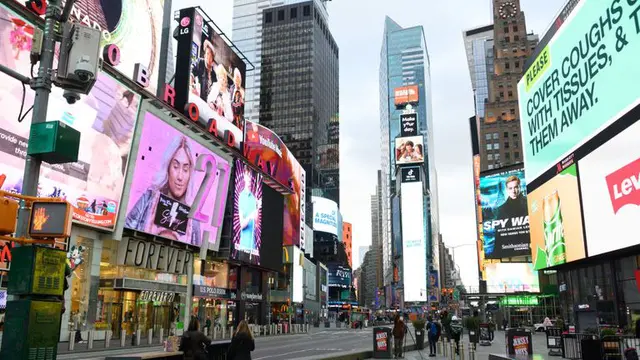New York health officials are planning to collect plasma from people who have recovered after contracting coronavirus and inject the antibody-rich fluid into patients battling COVID-19.
The US state's governor Andrew Cuomo announced two experimental medical interventions - the blood plasma transfusions, and another involving antibody testing in order to send survivors back to work.
The convalescent plasma treatment dates back as far as the 1918 flu outbreak but some experts believe it could be the best hope for fighting
COVID-19
until more sophisticated therapies are developed.
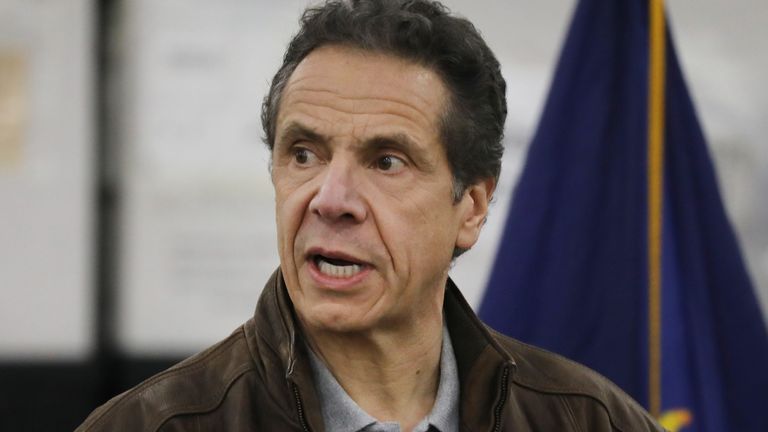
Image:Andrew Cuomo announced two experimental medical interventions
Mr Cuomo told reporters: "There have been tests that show when a person is injected with the antibodies, that then stimulates and promotes their immune system against that disease.
"It's only a trial. It's a trial for people who are in a serious condition, but the New York State Department of Health has been working on this with some of New York's best health care agencies, and we think it shows promise, and we're going to be starting that this week."
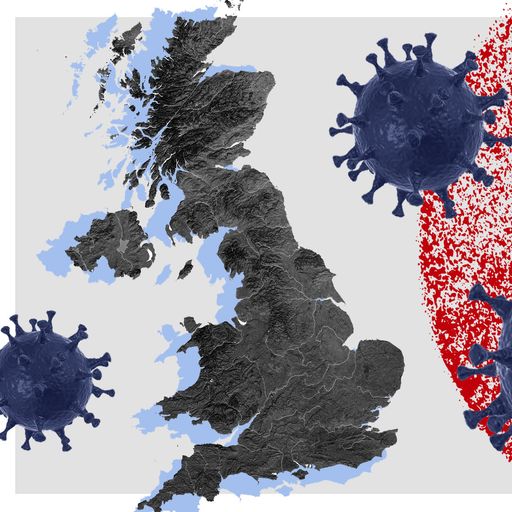
Coronavirus: The infection numbers in real time
The intervention comes as the number of confirmed cases in New York State surged to more than 20,000, with more than 12,000 cases in New York City and more than 150 deaths state-wide.
The US as a whole has had more than 40,000 confirmed cases and at least total deaths.

New York Couple wed on street
Speaking about the second experimental intervention, Mr Cuomo said: "There's also work on a serological drug where you test the antibodies of a person and see if they had the virus already.
"We all believe thousands and thousands of people have had the virus and self-resolved - if you knew that, you would know who is now immune to the virus and who you could send back to work."
**:: Listen to the Daily podcast on **
Apple Podcasts
**, Google Podcasts
, Spotify
, Spreaker
**
It comes as President Donald Trump said a clinical trial for the possible treatment of the coronavirus would soon start in New York, and reiterated his belief that a combination of anti-malaria drug hydroxychloroquine and the antibiotic azithromycin could see off the disease.
He told a news conference: "Clinical trials in New York will begin on existing drugs that may prove effective against the virus.
"We have 10,000 units going and it will be distributed tomorrow."
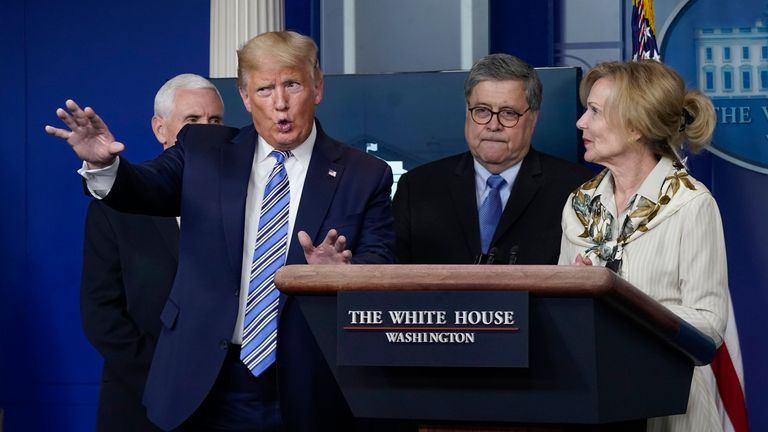
Image:Mr Trump vowed to reassess government restrictions
The comments come despite a man in Arizona dying after ingesting chloroquine phosphate - an aquarium cleaning product similar to the drugs Mr Trump has named as potential coronavirus treatments.
Chloroquine phosphate has the same active ingredient as the malaria drugs President Trump has touted as possibly being effective against COVID-19.
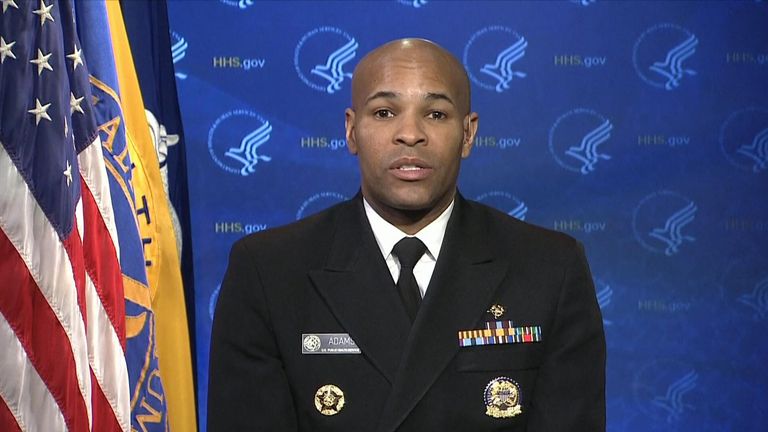
'This week, it's going to get bad' - US health chief
Meanwhile, the US leader suggested financial and social distancing remedies to deal with the pandemic may be more harmful than the virus outbreak itself and vowed to reassess government restrictions.
"We cannot let the cure be worse than the problem itself," he said. "America will again and soon be open for business.
"We are not going to let it turn into a long-lasting financial problem."
He added in a tweet: "WE CANNOT LET THE CURE BE WORSE THAN THE PROBLEM ITSELF. AT THE END OF THE 15 DAY PERIOD, WE WILL MAKE A DECISION AS TO WHICH WAY WE WANT TO GO!"
Other key developments in the US:
-
California's governor said the state needed 50,000 additional hospital beds to accommodate a surge in cases predicted by computer modelling
-
Washington state joined California and New York in ordering non-essential businesses to close and ordered seven million people to stay at home
-
President Trump signed an executive order making it illegal to excessively stockpile personal protective equipment needed by doctors and nurses
-
Team USA called for the 2020 Tokyo Olympics to be postponed over the global pandemic
 简体中文
简体中文

